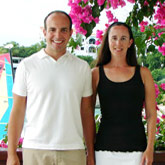Ken Dychtwald has long been one of America’s leading researchers on the topics of aging and retirement. With the publication this year of his 17th book, What Retirees Want: A Holistic View of Life’s Third Age, he spoke to The New York Times recently about how retirement has changed over the years and how people can better prepare.
When he started researching retirement in the 1970s, it was seen as “kind of a short wind-down period, following a life of hard work.”
It used to be that in retirement people sought to do things that they always liked, but didn’t have time for during their working years, like taking an extended vacation, playing more golf, socializing with friends, or reading some good books. That is how I thought about it, too.
However, with longer life spans and his own research showing “many retirees were feeling bored and irrelevant, for decades,” he now sees life generally broken down into three 30-year eras:
For our first 30 years of life, our focus is on biological development, making friends, identity formation and seeking a partner. Then, from 30 to 60, it’s a period occupied with building a family and a productive career. However, because of medical breakthroughs during the 20th century, what is now emerging is a whole new stage of life between 60 to 90. And that is uncharted territory, but we know for sure that it offers far more than the limited retirement arrangements that our parents and grandparents pursued.
For his new book, Dychtwald surveyed over 100,000 baby boomers. Among those who are retired, he said,
The immediate period of retirement is like a liberation, a honeymoon period where people are usually exhilarated. That only lasts a year or so, and then there is another shift toward reorientation where people explore those big questions of what am I going to do all day long and what will matter to me?
For Dychtwald personally, having just turned 70 really brought home the significance of all that he’s been researching, and the need for people to better prepare for retirement.
I’d like to be useful more than youthful…. However, I have been very troubled by the lack of usefulness among so many of my cohort. I’ve observed far too many boomers and older adults make themselves irrelevant. I was really troubled when I read that last year the average American retiree watched more than 48 hours of television per week. I don’t believe that’s the best we can do, or that’s the best we can be as elder men and women.
Based on Dychtwald’s comments, other studies I’ve read about retirement, and some personal reflections on the topic, it seems we would all do well to pray about, reflect on, and put some focus on the following:
We probably will retire one day. While the Bible doesn’t necessarily encourage retirement, most of us probably will eventually retire from full-time paid work, whether because of our own health, the health of a loved one, or God’s leading to put our time and attention elsewhere.
Relationships will matter more than ever. In one of the most comprehensive and longest-running studies into the importance of social connection, the Harvard Study of Adult Development began following the lives of more than 700 men when they were teenagers in 1938. More than 60 of the original participants, now in their 90s, are still taking part.
Psychiatrist Robert Waldinger, director of the study, summed up its findings by saying,
People who are more socially connected to family, friends, and community are happier, healthier, and live longer than people who are less well connected. And by the same token, people who are more isolated than they want to be are less happy, their health declines earlier in midlife, their brain function declines sooner, and they live shorter lives than people who are not lonely.
Women seem to be more naturally gifted at cultivating friendships. So, men, get working on this! And if you’re married, retirement will likely mean spending a lot more time together — a lot more time. So, how’s the health of your marriage right now? What could you do today to make sure you bring your best to your spouse in your later years?
We will want purposeful activity. As Dychtwald said, watching 48 hours of TV each week isn’t the best we can do. And it certainly isn’t God’s intention for us. However, according to the Employee Benefits Research Institute (EBRI) , 41% of today’s workers ages 55 and older have not thought about how they will spend their time in retirement. So, consider now how God might want to use your experience, skills, and passions to make a difference for Him in your later years.
We will want to enjoy good health. Of course, health is the big unknown as we get older. How long will we be able to stay active? Much of that is up to us.
I remember hearing Dychtwald give a talk many years ago in which he said something that really got my attention. He pointed out that there was a time when if dread disease made its way to your village, chances are you would get it and it might kill you. Today, pausing for dramatic effect, he said the primary cause of death is suicide. His point was that modern medicine protects us from so many things that used to kill people, but we’re killing ourselves with our lifestyle choices — stress, unhealthy food, lack of exercise. It’s a compelling message and one we would all do well to embrace sooner than later. Hitting our later years having neglected our health will not make for a very fulfilling retirement.
We will want a solid financial situation. Of course, this is the area where most retirement preparation articles focus, and clearly there’s a need for some work here. According to the EBRI, among today’s workers ages 55 and older:
35% have less than $100,000 set aside for retirement.
45% have not taken the time to estimate how much money they may need for retirement.
60% have not thought about how much money they may need for healthcare in retirement.
What’s the biggest mistake today’s retirees tend to make? Dychtwald said,
Far too many think far too small. I have asked thousands of people from all walks of life over the years who are nearing retirement what they hope to do in retirement. They tell me: “I want to get some rest, exercise some more, visit with my family, go on a great vacation, read some great books.” Then most stall. Few have taken the time or effort to study the countless possibilities that await them or imagine or explore all of the incredible ways they can spend the next period of their lives.
If you are retired, what are some lessons you’ve learned? What steps did you take to prepare that served you especially well? And what do you wish you had done differently?









